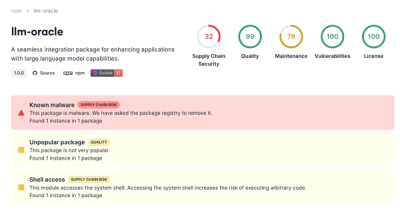fh-dev-tools
FeedHenry Development Tools
Install
npm install fh-dev-tools -g
Some commands require the fhcap-cli dev tool to be installed. A version of the fhcap-cli gem is bundled inside of the node module, you should see output similar to the following during the npm install:
################### Install fhcap-cli ###################
gem install /usr/local/lib/node_modules/fh-dev-tools/fhcap/pkg/*.gem --local
#############################################################
Run the outputed command to install a compatible version of the fhcap-cli gem:
gem install /usr/local/lib/node_modules/fh-dev-tools/fhcap/pkg/*.gem --local
More info on fhcap-cli usage and requirements can be found here
Usage
See Available Commands
fh
e.g.
Usage: fh <command> [options] [--debug] [--noprompt]
Commands:
setup Setup this tool
start [Dev] Start the development work of an issue
review [Dev] Create/update pull requests to review the development
work
builds [Dev] Show latest successful builds associated with a ticket
deploy [Dev] Deploy builds associated with a ticket via fhcap
merge [Dev] Merge all the pull requests associated with the ticket
finish [Dev] Merge all the pull requests associated with the ticket
and resolve the ticket
contrib [Dev] List contributors of a component
start-release [Release] Start the release - create the release branches
release [Release] Perform the steps required for a release
finish-release [Release] Finish the release
tag-release [Release] Tags components for a release. Done as part of
finish-release, but can be run separately
changelog [Release] Generate release changelog
components [Release] Generate release components versions
release-notes [Release] Generate release notes for a version
versions [Release] Show all release versions
release-email [Release] Send the release email
report [Util] Generate weekly JIRA report
pw [Util] Lookup a component password e.g. mysql, mongo
qe-status [QE] Generate weekly QE status from status emails and JIRA
test-release [QE] Assign testers to a release and kick-off testing process
clone [Util] Git clone copies of various components from fheng
Options:
--debug Show debug level logging
--noprompt Skip all the prompts
--version Show version number [boolean]
Setup
fh setup
Then answer the questions.
About Github token
During setup, this tool will ask for your Github access token for sending pull requests. This will ensure things work even if you are using two factor authentication.
About Email Setup
During setup, this tool will ask for your Gmail user name and App Password for sending out emails. You should not use your Gmail account's user password here.
If you choose not to set the password, the tool will print out the email content to the console so you can compose the email using other tools. However, the email content will be in Markdown and you may need other tools to support editing emails in Markdown (e.g. You can try Markdown Here). But there is no way to support Mail.app at the moment.
A note about repo setup
By default, this tool will assume there are 2 remotes setup for each component repo:
- origin - the forked component repo in your own GH account
- upstream - the original component repo in then fheng organisation account
Many of the commands allows you to override the base branch. See each command's help information for more details.
Commands for dev flow
Start working on a JIRA ticket
fh start -t [JIRA Ticket]
This command will:
- Get the JIRA ticket details, figure out what components will be changed
- Creating the new branch in each of the affected component
- Update the ticket status to 'coding in progress'
Creating PRs for buils and code reviews
fh review -t [JIRA Ticket]
This command will:
- Get the JIRA ticket details, figure out what components are changed
- Check if a rebase is required before creating the PR
- Check if the same PR is already created for those components
- Create the PR for each component
- Update the ticket status to 'pull request sent' and add the links of the pull requests
Deploy to PPA
fh deploy -t [JIRA Ticket] -c [Staging Cluster e.g. ppa3 or ppa4]
This command will:
- Get all the component builds associated with the JIRA ticket
- Update the component cookbooks in FHCAP
- Start the deployment to the specified PPA cluster if user agrees
Finish with the JIRA ticket
fh finish -t [JIRA Ticket]
This command will:
- Get all the PRs associated with the JIRA ticket
- Try to merge each PR
- Will check if rebasing is required
- Prompt user for squashing commits
- Push to both origin and upstream
- Delete the merged branches automatically
- Resolve the JIRA ticket
Assign testers to the release
fh test-release -r <release-version1> [-r <release-version2>] [-b <build1> -b <build2> ...] [-t <tester-id1:tester-assignment1> ...]
This command will:
- Get all issues marked as Resolved, Ready For QA or Verified for given release(s) and given build(s)
- Will check all issues that are Ready For QA and do not have a Tester assigned or their tester was not enumerated on command line and randomly assign tester
- Provides an email to be sent to mobile-qa-list@redhat.com
How testers are identified?
- If no tester(s) are provided, all QE team is evenly split for issues to be verified
- If you provide a tester, you must specify his/her assignment after colon. It can be any number and it will represent relative part to total sum of assignments provided
on command line



